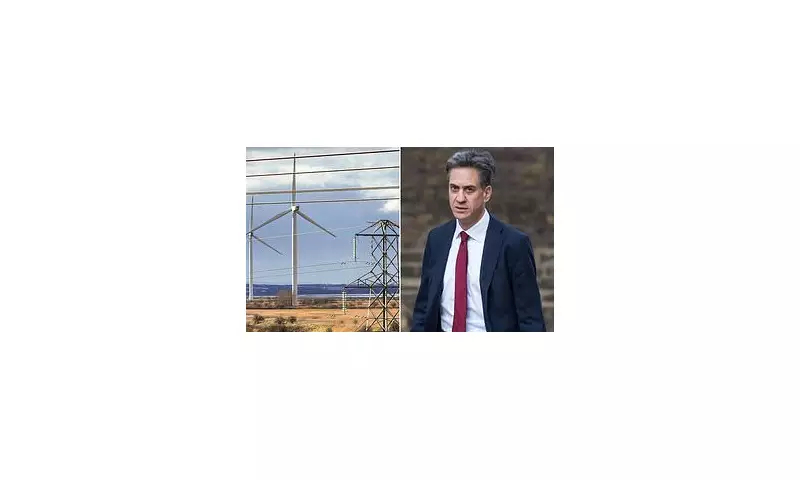
Energy Secretary Ed Miliband is facing mounting pressure after startling revelations that Britain's wind farms are producing far less electricity than government assessments had previously indicated.
The controversy emerged when official data exposed a significant gap between projected and actual output from offshore wind installations, throwing the Labour Party's ambitious Net Zero plans into question.
The Power Shortfall Exposed
According to recent analysis, wind farms across the UK are generating substantially below their expected capacity. The disclosure comes as particularly embarrassing for Mr Miliband, who has positioned himself as a champion of renewable energy and has made expanding wind power a cornerstone of his energy strategy.
Critics have seized upon the findings, accusing the Energy Secretary of building energy policy on "bogus" assumptions that don't reflect the reality of renewable generation capabilities.
Political Storm Gathers
The Conservative Party has launched a fierce attack on Mr Miliband's credibility, suggesting the shortfall demonstrates fundamental flaws in Labour's approach to energy security. With households already grappling with high energy bills, opponents argue that relying on unreliable generation estimates could jeopardise both affordability and supply stability.
One senior Tory figure commented: "This isn't just about missed targets - it's about whether we can trust this government to deliver a workable energy policy that keeps the lights on without bankrupting consumers."
What This Means for Net Zero
The revelations pose serious questions about the feasibility of current Net Zero timelines. If wind power, a central pillar of the UK's decarbonisation strategy, is underperforming expectations, it may require either:
- A significant acceleration of alternative renewable projects
- Extended reliance on fossil fuels as backup
- Revised and potentially delayed Net Zero targets
The Department for Energy has acknowledged the discrepancy but maintains that wind power remains a crucial component of Britain's energy mix. Officials point to ongoing technological improvements and new projects in development that should boost future generation capacity.
However, with energy security becoming an increasingly pressing concern for voters and industry alike, the pressure is mounting on Mr Miliband to provide both transparency and workable solutions.





